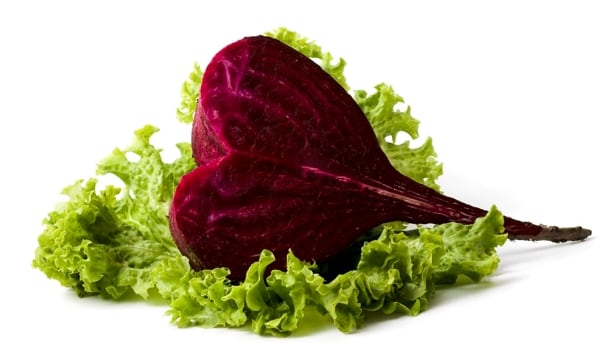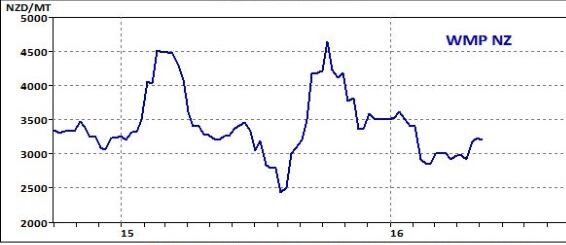The ABC aired the “Supplements and Safety” story on its investigative “Four Corners” programme after Complementary Medicines Australia, the industry body, raised concerns that the episode, produced by PBS in America, had no merit Down Under.
“We are disgusted that the ABC agreed to provide a level of balance by acknowledging the strict regulatory environment for Australian complementary medicines and then failed to do so,” said Carl Gibson, chief executive of CMA.
The programme examined aspects of the quality and safety of vitamins and dietary supplements in America and quoted experts including the clinical manager of a pharmacy, who said that “when you’re buying a dietary supplement, unless you have some proof of what’s in that product, it could be anything”.
Another interviewee, a doctor at Harvard Medical School, is seen to say: “You can sell something without any evidence that it's safe or effective.”
It also recounted the story of a group of patients in Hawaii who suffered liver failure following the ingestion of a dietary supplement and revealed that 60% of American supplements analysed for active ingredients did not contain what was stated on the label.
Gibson said CMA had informed the ABC before the show aired that comparisons could not be drawn between American supplements and those from Australia as the quality control environments between the two countries are very different.
"They assured me it would be 'in context. It wasn't, which is a breach of ABC standards," said Gibson, who has submitted a formal complaint to the broadcaster.
CMA argues that because America regulates supplements as food, whereas Australia’s regulations are similar to those of the pharmaceuticals industry, the two systems cannot be compared in the context of the syndicated TV report.
"The Australian regulatory regime for complementary medicines is such that it is viewed by most countries as the consumer protection benchmark,” said Gibson.
“A US-produced story about supplements is very misleading to consumers and unfairly damaging to an Australian industry that contributes A$4.2bn [US$3bn] a year to the nation’s economy.”
Placed in the correct context, Gibson said the story highlighted how overseas products are not subject to the same regulations as those enforced in Australia when purchased online.
He said Australian products only use ingredients assessed as safe and allowed at safe levels by the Therapeutic Goods Administration (TGA), the regulator, which mandates verification testing of all active ingredients before a product is manufactured. Neither of these are mandatory in America.
“Supplements sold over the internet are unlikely to have been evaluated by the TGA, which means there is no surety that the product contains what it says it does,” said Gibson.
“The complementary medicines industry in Australia is governed by strict quality and safety criteria and consumers can have confidence in the quality of the herbal, vitamin or mineral medicines they chose for their health and wellbeing.”
More stories from Down Under…
Queensland research aims to establish beetroot’s super-food credentials
An Australian study is underway to discover whether beetroot juice could be a new super-food that improves vascular health in older people.

Queensland University of Technology’s Oliver Neubauer is in the process of recruiting healthy seniors to take part in a world-first project by having blood samples taken before and after drinking beetroot juice.
“Our study is the first to investigate the immediate effects of beetroot juice on factors affecting vascular health, particularly blood clotting, the body’s immune cells characteristics, blood pressure and inflammatory issues in mature-aged people,” Dr Neubauer said.
Beetroot juice is naturally rich in nitrate, which elicits anti-inflammatory, anti-coagulative and anti-thrombotic effects in humans, according to recent discoveries.
“The research will provide us with important information on the potential for a lifestyle-based intervention involving beetroot juice to prevent some age-associated diseases, preserve the function of blood vessels and promote healthy ageing.”
Dr Neubauer said he was looking for healthy men and women between 60 and 70 in a normal weight range to visit the university’s laboratories twice over a two-week period to have their blood and heart activities measured and blood collections taken after consuming either nitrate-rich or nitrate-depleted beetroot juice.
He added that while there was some loss of nitrate in washing, peeling and/or cooking beetroots, the health benefits remained high and the same applied to other nitrate-rich foods such as leafy green vegetables.
“Beetroots, like all fruit and vegetables, have multiple benefits, but the fact they are rich in nitrates puts them into the ‘super food’ category,” he said.
Kiwi whole milk powder prices buoyed by reduced Chinese stocks
New Zealand whole milk powder prices increased by 7% in May over the corresponding period last year, driven by decreased supply and increased export demand from China.

Until this month, Chinese demand has been subdued over the last year, according to commodities analyst Mintec, after New Zealand’s largest export market ended 2014 with 300,000 in surplus stocks.
This, combined with a slowdown in China’s economy, led the country to receive 250,000 tonnes less of whole milk powder in 2015.
Now, with stocks estimated at 90,000 tonnes—down 18% year on year—China has begun to increase whole milk powder imports from New Zealand as it sets out to replenish levels.
Its overall imports have increased by 25% year on year over the first three months of 2016, to 204,000 tonnes, with the majority from New Zealand.
Increased export demand and lower supply has resulted in a rise in New Zealand prices for the commodity.
